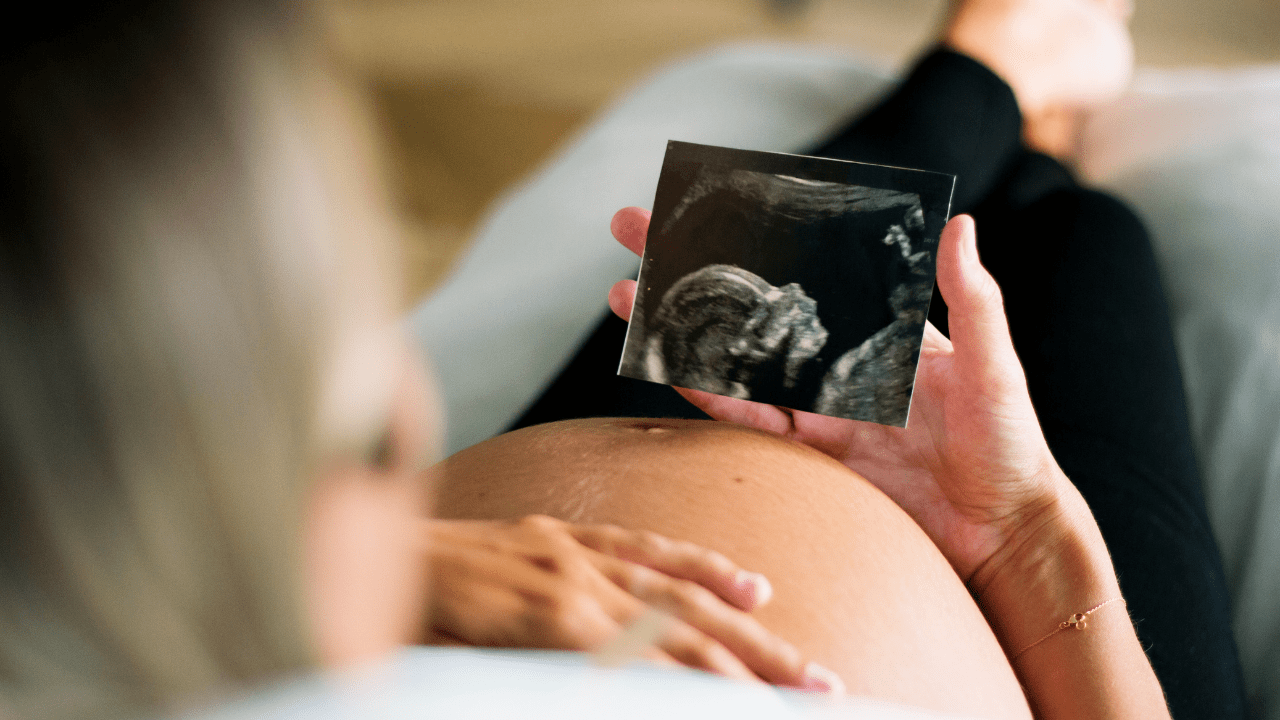Am I at risk for gestational diabetes?
Any woman can develop gestational diabetes during pregnancy. First of all, what is gestational diabetes? Gestational diabetes is a type of high blood sugar that only pregnant women get. The word gestational actually means pregnant. If a woman gets high blood sugar when she’s pregnant, but she never had high blood sugar before, she has gestational diabetes. Between 2 and 10% of US pregnancies are affected by this condition every year, making it one of the top health concerns related to pregnancy. If it’s not treated, gestational diabetes can cause problems for mothers and babies, some of them serious.

So why does some women get gestational diabetes? Usually the body breaks down much of the food you eat into a type of sugar called glucose. Because glucose moves from the stomach into the blood, some women use the term blood sugar instead of glucose. Your body makes a hormone called insulin, and that moves glucose out of the blood and into the cells of your body.
Gestational diabetes happens when the hormones from your placenta block your ability to use or make insulin. Therefore, the glucose can’t get into the cells, so the amount of glucose in the blood gets higher and higher. Insulin helps your body maintain the right amount of glucose in your blood.
Women have an increased risk if:
- They’re overweight.
- They’re related to someone who has diabetes now or had diabetes in his lifetime.
- Previous pregnancy with gestational diabetes, stillbirth, miscarriage or a large baby.
- A baby weighing more than, let’s say, 9 pounds?
- Someone who’s had polycystic ovarian syndrome or PCOS. Or another health condition that’s related or linked to insulin problems.
- Problems with the insulin or blood sugar, such as insulin resistance, glucose intolerance or prediabetes, high blood pressure, cholesterol and heart disease are also a factor to look at.
So what can you do? Healthy diet, regular exercise and maintaining a healthy weight. Based on your risk level and other factors, your healthcare provider first will give you a glucose screening test. If you have gestational diabetes, your healthcare provider will work with you to create a treatment plan that will keep the condition under control all throughout your pregnancy. Most treatment plans include keeping your blood sugar levels within a normal range.

So first, eating a healthy diet diet can be a contributing factor to developing gestational diabetes. So choose healthier carbohydrates, ones that cause less spikes in your blood sugar levels. For example, it’s better to eat complex carbs such as Muesli and cut down on the simple carbs like corn flakes cereals. Other simple carbs that are low in fiber are things like white bread, cookies, cakes, white rice, and other highly processed cereals. Stay away from these. Eat more fruit and vegetables. You might be wondering about fruit and if you should avoid it because it’s sugary. The answer is no. Whole fruit is good for everyone. Personally, I tend to stay away from the more sugary fruits like melons and move toward the berries, which are more low sugar fruit and that will help me more to keep my blood sugar in balance. Choose whole fruits over fruit juice. The fiber and other nutrients in the fruit, skin, and pulp make the whole fruit significantly healthier than healthier than fruit juice 2. Cut down on added sugar. Cutting out added sugar can help you control your blood sugar levels and keep your weight down. 3 Eat less salt. Eating lots of salt can increase your risk of high blood pressure, which in turn increases risk of heart disease and stroke. And when we have diabetes, you’re already more at risk for all of these conditions. So that’s it for the carbohydrates and diet.
Now let’s look at exercise. Do regular physical activity. Gentle exercises and walking can prevent gestational diabetes, so just remember to stay active during your pregnancy. Maintain a healthy weight. In saying this, it’s not a time to go on a weight loss diet, but do be mindful that you’re not overeating. Stay away from chemicals. Chemicals are everywhere around us, in our environment, in foods we eat, in products we found put on our skin, they’re found in, on and around our bodies. So just be aware of what’s in your product. What’s in your foods? Read the ingredients and what’s in the environment around you. Diabetes develops as a result of hormonal imbalance. Your pancreas produces the hormone insulin, which is absorbed from your blood by your fat, muscle and liver cells and used as energy. Insulin also aids other metabolic processes in your body.

Chemicals disrupt the hormone balance in your body, so be aware of chemicals found in moisturizers and lotions, cosmetics and feminine hygiene products. Anything applied to the skin should be water free to ensure that it’s chemical free. Anything ingested should be organic free from pesticides, additives and hormones. Anything around your environment should be clear of allergens, molds, and toxic pollution. Some women may also need to take insulin as part of their treatment plan. More and more women with gestational diabetes have healthy pregnancies these days and healthy babies because they follow their treatment plans and they can control their blood sugar levels.







